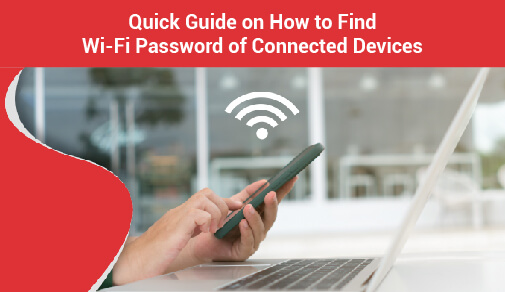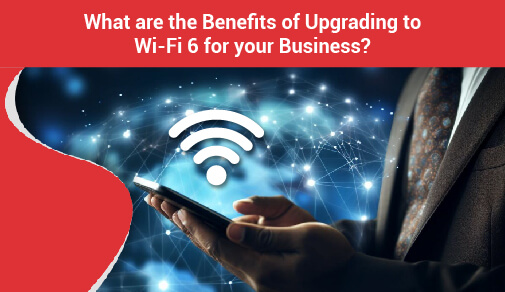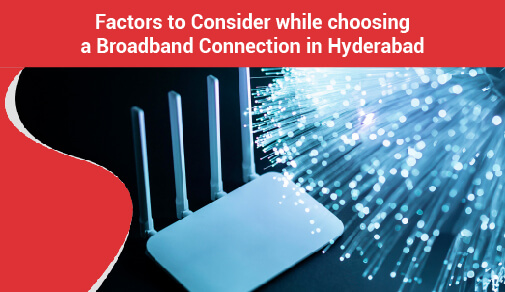Broadband connection vs 4G
-
0
-
-
4 minutes

Speed:
The overburdening of 4G with an increasing number of users has significantly impacted its performance. Browsing through 4G doesn't deliver a seamless experience as claimed by the network providers. Home broadband internet, in contrast, is relatively under-utilized and therefore offers a smooth browsing experience. According to the Speedtest Global Index, October 2019, the average fixed broadband download speed in India is 36.15 Mbit/s and the average fixed broadband upload speed is 34.59 Mbit/s as compared to the average download speed on mobile connections as 11.52 Mbit/s and average upload speed of 4.56 Mbit/s.
Network congestion is a common occurrence while using a 4G connection due to a large number of people coming online at a given time. It is, therefore, a cause of concern for those who are dependent on home internet for their work. Losing the connection in the middle of an important meeting can, at times, prove disastrous. For game lovers, speed lag is a deterrent to having a 4G connection.
In similar situations, if one has a broadband internet connection, speed is never a concern. Especially if you’re on an optic fiber broadband connection, you can experience lightning fast speeds up to 100 Mbps which is best suited for working from home, gaming, and live video streaming.
Reliability and consistency:
Problems like dropout and disconnection create network slowdowns which makes 4G fall under the ‘not so reliable source of internet’ category for important activities. Even though 4G offers mobility advantage, it is not consistent on internet delivery on-the-go. Underdeveloped infrastructure and an outrageously growing number of users have resulted in inconsistent internet experiences with 4G. In contrast, home broadband connections are not mugged down by issues of overburdening and infrastructural problems and consequently, are highly reliable and consistent in delivering a steady online experience.
Mobility:
4G internet provides connectivity even when one is travelling. However, even 4G’s mobility advantage is no longer quite as much of an advantage. That’s because broadband providers have now started offering Wi-Fi hotspots across public places. For instance, users in Hyderabad, Chennai and Bengaluru can enjoy 2500+ ACT Wi-Fi hotspots across the city— from bus stops to parks to libraries. Non-ACT users can use the hotspot for 45 minutes per day while ACT users can log in using their credentials and freely access the internet.
Price:
Though a 4G internet plan may look lucrative at the onset, it eventually turns out to be a costly affair in comparison to broadband plans. Consider a family of 4, where the mother works from home, the father has a flexible job, the son is an internet game-freak, and the daughter is a binge-watcher. If each one of them takes a 4G plan of ₹500 each, the family will spend ₹2000 per month and still get limited data allowance with an inconsistent network. Now, suppose the same family opts for a fiber optic broadband plan, they will get easily up to about 500 GB monthly data by paying around ₹1000/month. Not only will they save money, they will also get uninterrupted internet with great speeds to support the mother’s work, father’s occasional online meetings, daughter’s gaming sessions and the son’s Netflix marathon.
Add-ons Benefits:
Most of the broadband service providers extend attractive bundle offers, like free subscription to Netflix, Amazon Prime, Hotstar, and other streaming services. They bid a variety of tailored broadband plans to suit individual needs. 4G, on the other hand, is a standalone offering by network providers without any additional benefit. It comes with various plans that offer a certain amount of fixed data per month.
Since each of the internet services have advantages over the other in a given context, it is extremely difficult to announce a clear winner. Broadband connections stand out when it comes to consistency in performance, cost-benefit, and superior speed while 4G takes a lead in terms of mobility. The final decision should be taken considering the usage and priority. If your job involves frequent travel, opt for a 4G connection to the internet, or else just stick to an attractive broadband plan and enjoy the unmatched speed at affordable prices.







